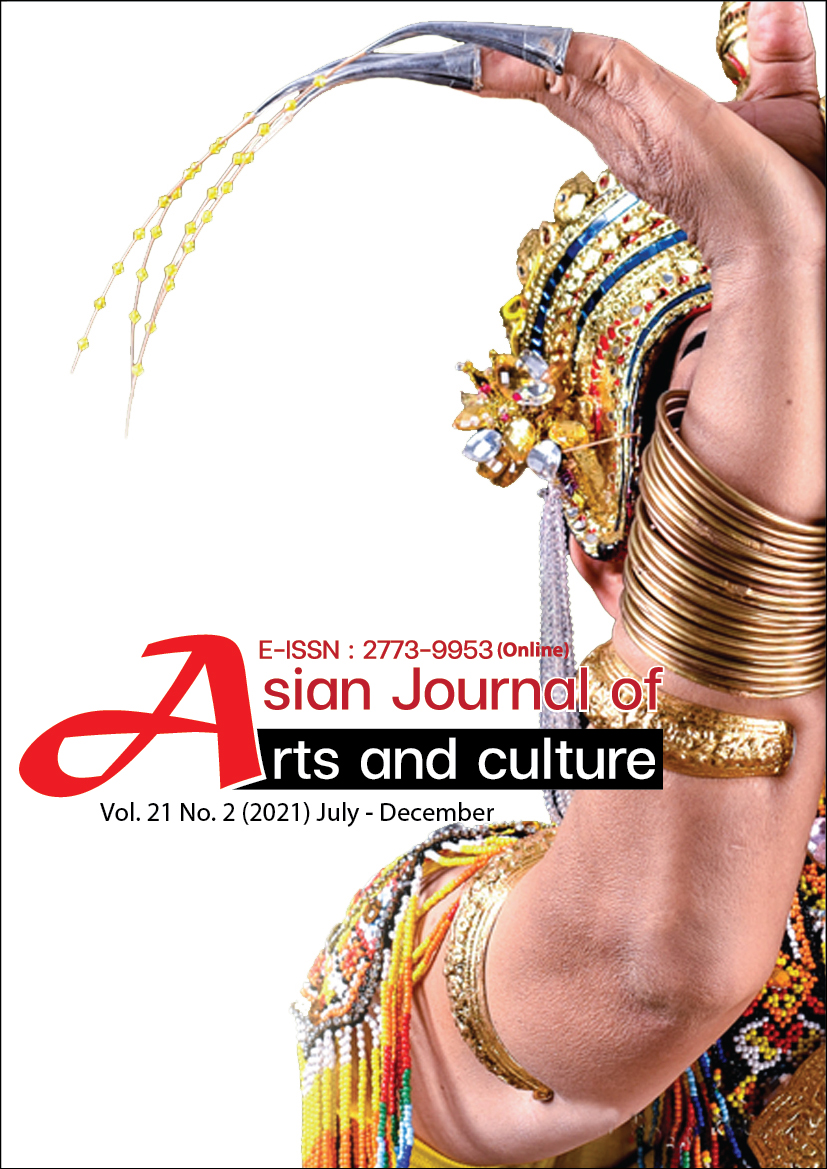Being Kru Nora Thammanit Nikhomrat and the Concept of Transmission of Nora in Educational Institutions
Main Article Content
Abstract
The article Being Kru Nora Thammanit Nikhomrat and the Concept of Transmission of Nora in Educational Institutions is aimed to study into pedagogical self of Kru Nora Thammanit Nikhomrat and the concept of transmission of Nora in educational institutions. Data were collected from documents, books, related studies and interviews within the study scope 1) initial step of introducing Nora to educational institutions 2) educational achievements 3) research concerning education and 4) rewards and recognitions given by educational institutions to praise pedagogical attributes as well as interviews Nora choreography, teachers, experts and professionals in Nora art.
Results revealed that Kru Nora (Nora teacher) Thammanit Nikhomrat adopts the concept of transmission of Nora in educational institutions which commences with establishing recognition through propagation of knowledge in the educational institutions both inside and outside the system in order to broaden the recognition of Nora by means of creating the concept as well as performance methods based on the teacher’s performance experience and expertise which can intrigue learners. Also, the body of knowledge is also integrated with practices of other performances in which Kru Nora Thammanit Nikhomrat dedicatedly co-creates with learners. Kru Nora Thammanit Nikhomrat will observe social the context of social lives to orient the education in compliance with it to ensure benefits and solidify Nora in educational institutions. This will enable contribution of Nora wisdom to learning, teaching and present educational management which represents evolving creativity of Nora in each period. Learners will get to activate the creativity-based learning process giving birth to imagination and creativity which plays an important role in today’s society as a way to instill awareness of value and importance of the local wisdom as well as the will to conserve and inherit legacy of local performing art.
Article Details

This work is licensed under a Creative Commons Attribution-NonCommercial-NoDerivatives 4.0 International License.
© 2018 by Asian Journal of Arts and Culture, Walailak University. All rights reserved.
References
Khammani, T. (2010). Pedagogical Sciences: Knowledge for effective organization of learning processes (13th ed.). Bangkok, Thailand: Chulalongkorn University.
Khammani, T. (2018). Guidelines for learning management in the 21st century. Bangkok, Thailand: Chulalongkorn University.
Nakhawiroj, S. (2018). Basic Nora Performance by Khun Uppathumnarakorn (Pum Devha).
Phetchaburi, Thailand: Phetphum Publishing.
Nikhomrat, T. (2014). Management of learning and broadcasting Nora performances for youths
of the Tanodduan sub-district Municipality, Kuankhanun district, Phatthalung. Songkhla, Thailand: Thaksin University.
Samudavanija, A. (1997). Learning in the 21st Century. Bangkok, Thailand: the Siam Commercial Foundation (SCFO).
Interview
Nikhomrat, T. (2018, October 25). Personal communication [personal interview]
Sriruang, S. (2020, November 24). Personal communication [personal interview]


